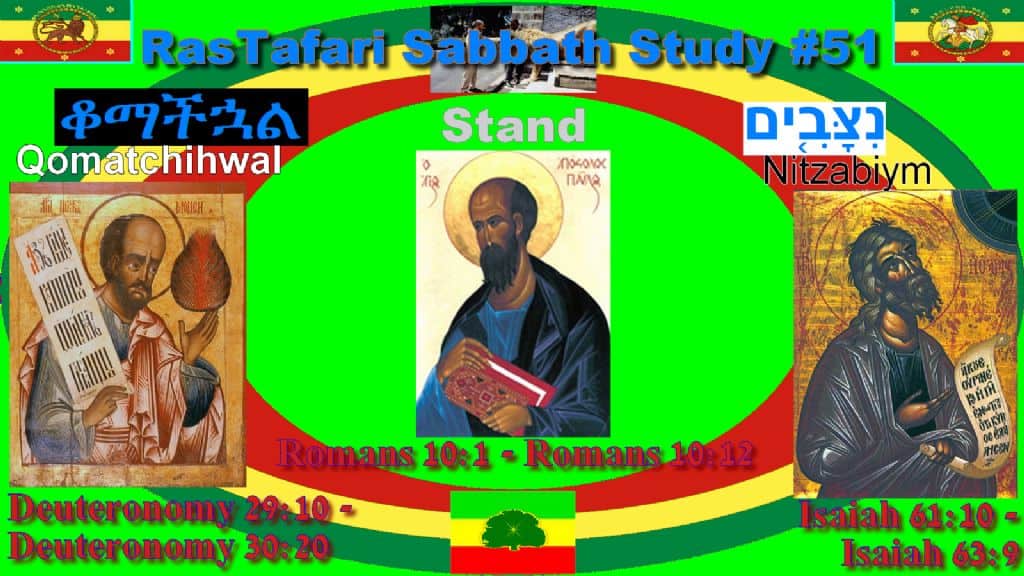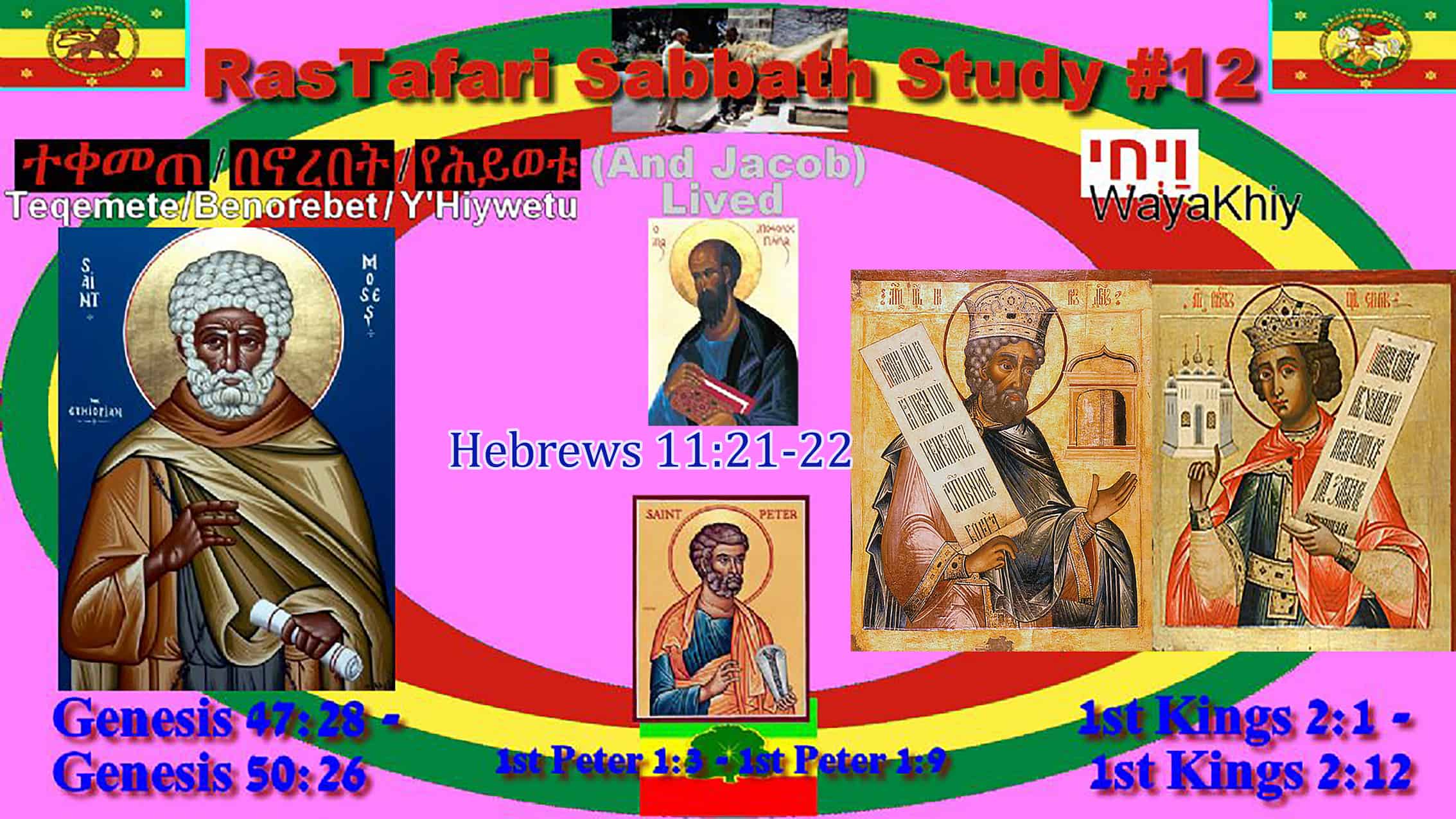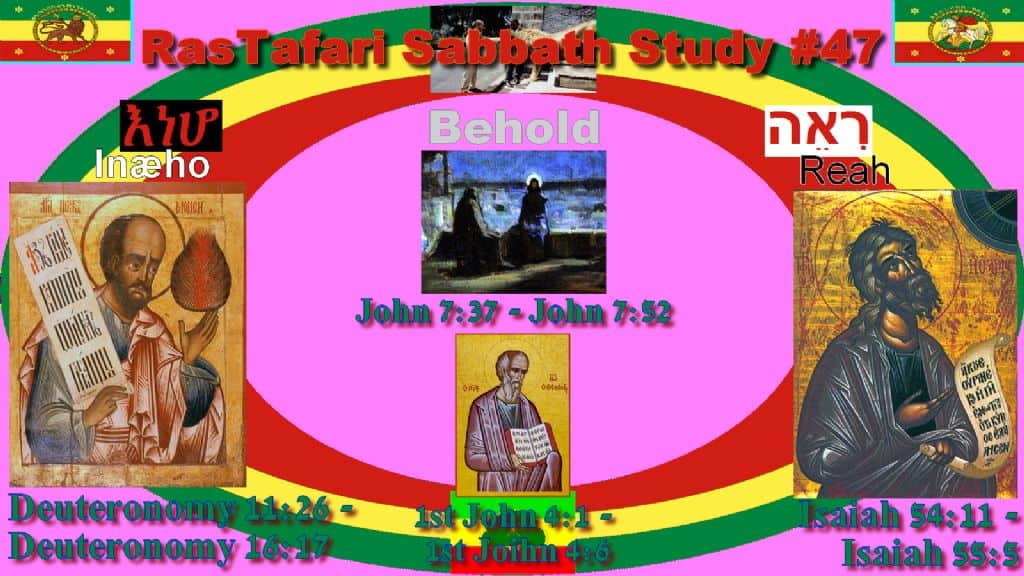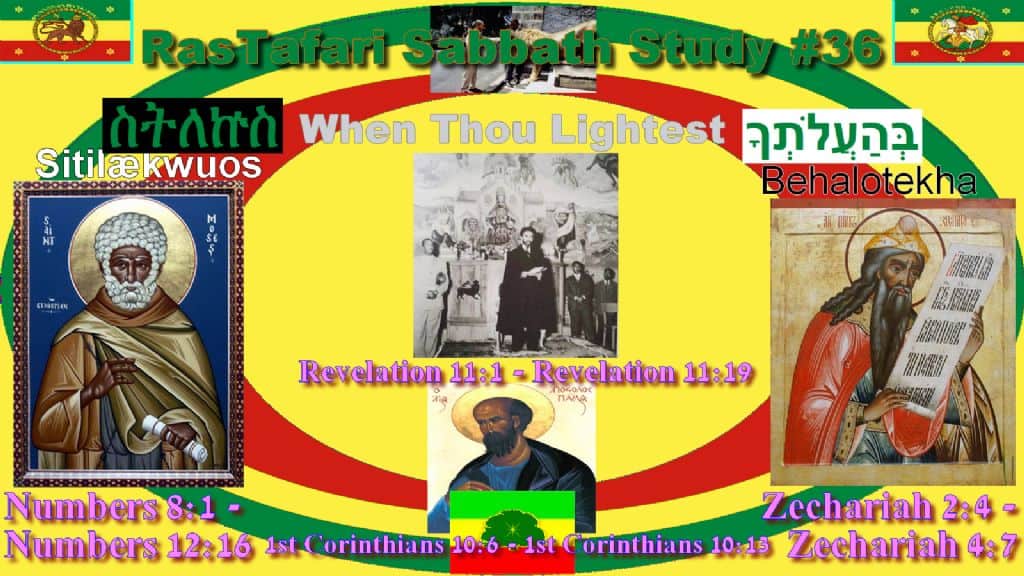This Week's Portion #13
Shemot | שמות | "Names" ስሞች | S’moch [Simoch]
*For a PDF version of All the Torah Portions Schedule, click here to download!
2. Prophets Reading
Isaiah 27:6-28:13; 29:22-23
3. New Testament Reading
Acts 7:17-35; 1 Cor 14:18-25
Portion Outline - TORAH
- Exodus 1:1 | Introduction
- Exodus 1:8 | The Israelites Are Oppressed
- Exodus 2:1 | Birth and Youth of Moses
- Exodus 2:11 | Moses Flees to Midian
- Exodus 3:1 | Moses at the Burning Bush
- Exodus 3:13 | The Divine Name Revealed
- Exodus 4:1 | Moses' Miraculous Power
- Exodus 4:18 | Moses Returns to Egypt
- Exodus 5:1 | Bricks without Straw
- Exodus 6:1 | Israel's Deliverance Assured
Portion Outline - PROPHETS
- Isaiah 26:1 | Judah's Song of Victory
- Isaiah 27:1 | Israel's Redemption
- Isaiah 28:1 | Judgment on Corrupt Rulers, Priests, and Prophets
Portion Study Book Download & Summary
 SHEMOT Hebrew Book of Exodus - Torah Portion Vol.2 (FREE PDF)
SHEMOT Hebrew Book of Exodus - Torah Portion Vol.2 (FREE PDF)
Shemot (שמות) is both the title for the second book from the scroll of the Torah and the title of the first Torah portion therein. Shemot means “names.” The English-speaking world calls this book Exodus. The Hebrew title for the book comes from the opening phrase of the book: “Now these are the names (shemot) of the sons of Israel who came to Egypt with Jacob” (Exodus 1:1).
The English name Exodus comes from the Septuagint (LXX), the Greek translation of the Hebrew Bible. The Greek title for the book is Exodus Aigyptou, which translates as “Departure from Egypt.” The name Exodus is an abbreviated form of that title. Exodus means “departure.” The book of Exodus tells the story of the children of Israel enslaved in Egypt and their miraculous redemption through the hand of Moses, the story of the giving of the Torah at Mount Sinai, the construction of the golden calf and the construction of the Tabernacle.
As we study the first week’s reading from the book of Exodus, we find the children of Israel in slavery. It seems at first that the God of their forefathers has forgotten them. But God has not forgotten His promises. He remembers His promises to Abraham, Isaac and Jacob and brings a Redeemer to their children’s children, for the sake of His name, with love.
Portion Commentary
Ordinary Life
Thought for the Week:
When Moses saw the burning bush, he turned aside to investigate. Only then did the Holy One reveal Himself to Moses. Our problem is that we do not take the time to turn aside and investigate. We all intend to grow spiritually. We all imagine that one day, we will take time to study, take time to grow in Torah, to do a mitzvah (commandment), to pray regularly. But you can’t take good intentions to the grave. A famous rabbi once said, “Do not say to yourself, ‘When I have more time, I will study Torah. Perhaps you will not have more time.’” 1 Do not say, when I have more time, I will turn aside, you might not have more time.
Commentary:
Now Moses was pasturing the flock of Jethro his father-in-law, the priest of Midian; and he led the flock to the west side of the wilderness and came to Horeb, the mountain of God. (Exodus 3:1)
When Moses got up that morning and counted the sheep, he did not say to himself, “I think I’ll take the sheep out on the west side of the wilderness over by the Mountain of God.” Mount Horeb was simply Mount Horeb, an indistinct rock in the wilderness like so many other hills and mountains, completely ordinary looking. There was nothing special about it. Mount Horeb became Mount Sinai, the mountain of God, simply because God chose it, not because it was taller, mightier or holier than any of the surrounding hills and mountains. In the same way, Moses became Moses, the Man of God because God called him, encountered him and commissioned him, not because he was more pious, mightier, smarter or more eloquent than other men. God is in the ordinary, and encounters with God happen in ordinary places. But when God is encountered, the ordinary is immediately transformed into the extraordinary. The very ordinary Mount Horeb was transformed into the extraordinary, Mount Sinai because of God’s presence was there. The very ordinary Moses, a simple Hebrew exile from Egypt, a shepherd in the wilderness, was transformed into Moses the Man of God, the greatest prophet of all time because he encountered God. God transformed the ordinary man into something extraordinary.
Most of us do not regard ourselves as extraordinary people. You probably think of yourself as a fairly ordinary person with a fairly mundane life. From God’s perspective, that is perfect. You are the perfect person with whom He can do extraordinary things. He is not looking for prophets; He is looking for normal people who are carrying on under normal circumstances.
Middot U’Mitzvot (Character and Deeds)
The Golden Handcuffs
When Jacob first went down to Egypt, he went only to sojourn there until the famine had passed. It was supposed to be temporary. But the temporary stay turned into what looked like permanent residence. They settled, and they prospered. They might have remained in Egypt, happy and well fed. Life in Egypt was good. Too good.
Happy, well-fed and prosperous, the children of Israel could have easily forgotten about their great spiritual heritage. Content with the comforts and luxuries of Egypt, they might have abandoned their aspirations of inheriting Canaan. Who would want Canaan when he already had Egypt?
The children of Israel found their situation in Egypt suddenly reversed when the Egyptian government forced the Hebrews into servitude. Success and prosperity can quickly turn into bondage. A person becomes accustomed to privileges and luxuries and begins to think of those things as necessities. Things that, at one time, he could not afford, and therefore did not worry about, become indispensable needs as he prospers. His own wealth and success become “golden handcuffs” from which he cannot escape. While we are in the service of materialism, our spiritual health inevitably suffers. Yeshua warned us saying, “No one can serve two masters; for either he will hate the one and love the other, or he will be devoted to one and despise the other. You cannot serve God and wealth” (Matthew 6:24).
Whether it is the trappings of wealth or the pressures of socialization, we must beware of allowing ourselves to be spiritually enslaved. The children of Israel may have fallen victim to both. Real, physical enslavement followed quickly.

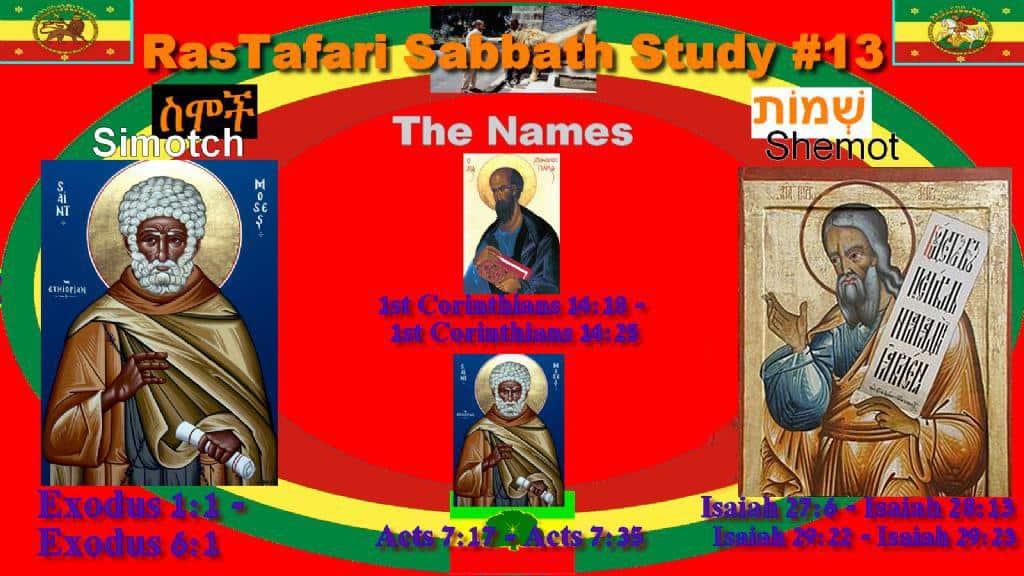
![Shemot | שמות | "Names" ስሞች | S’moch [Simoch] Shemot | שמות | "Names" ስሞች | S’moch [Simoch]](https://rastafarigroundation.org/wp-content/uploads/2020/01/Shemot-שמות-22Names22-ስሞች-S’moch-Simoch-.jpg)
![Shemot | שמות | "Names" ስሞች | S’moch [Simoch] Shemot | שמות | "Names" ስሞች | S’moch [Simoch]](https://rastafarigroundation.org/wp-content/uploads/2020/01/Shemot-שמות-22Names22-ስሞች-S’moch-Simoch-2.jpg)
